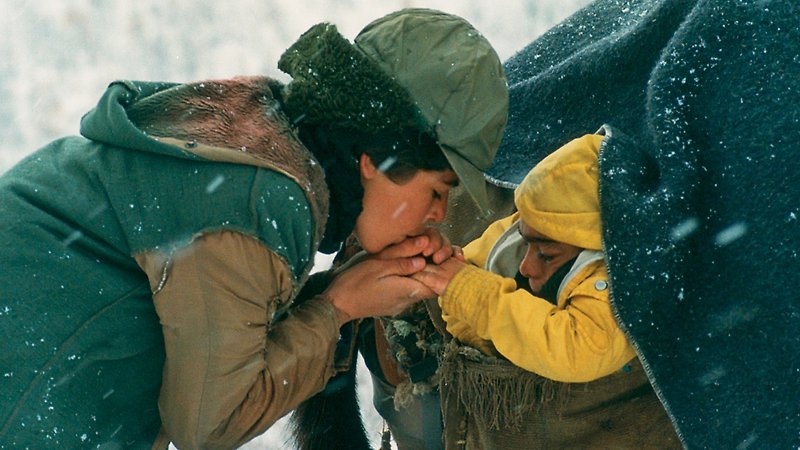
Screened as part of NZIFF 2001
A Time for Drunken Horses 2000
Zamani barayé masti asbha
The film takes place in a wintry, mountainous Kurdish area near the Iraqi border, where the main livelihood seems to be smuggling goods by mule across valleys strewn with land mines and menaced by bandits and military patrols. Ayoub, the eldest boy in a family of five children orphaned early in the film by a mine, tries to provide for his brothers and sisters in these almost unendurably harsh circumstances. The film – slow, bleak and terribly moving – follows his attempt to obtain medical treatment for his severely handicapped brother, Madi, who will die without an operation.
Mr Ghobadi uses nonprofessional actors and tells his story in a naturalistic style that purposely blurs the distinction between fiction and documentary – the voice-over in the film’s early scenes consists of an interview between Ayoub’s younger sister, Amaneh, and an unidentified adult… While Mr Ghobadi shows moments of tenderness and humanity – Ayoub’s efforts to make sure Amaneh has notebooks for her schoolwork, the other children’s solicitude in looking after the tiny, fragile Madi – this film, his first feature, is pervaded by a feeling of grim anxiety.
The village in which the children live doesn’t seem to be thriving, and though the local adults – an uncle, the village doctor – sometimes help them out, Ayoub and his siblings are very much on their own. Ayoub, allowing himself a touch of pride in his newfound responsibility, is nonetheless still a child, vulnerable to being cheated by middlemen when he joins the smugglers and overruled and humiliated by his uncle in matters affecting family honor…
The look of the film underscores the harshness of its story. It seems to have been shot in blizzard conditions; at times the handheld camera is almost snowblind, and the children’s hands and faces are raw with cold. The title refers to the smugglers’ practice of spiking their pack animals’ water with alcohol to keep them moving.
The last sequences, in which the drunken animals flounder in the snow, may be especially disturbing to Western viewers accustomed to being assured that no animals were harmed for entertainment purposes. You may also wonder whether the children were entirely safe, but the point of the movie is precisely to show that they’re not… A Time for Drunken Horses may not be for every taste, but it’s still an affecting, and in its way beautiful, movie. — A.O. Scott, NY Times, 27/10/00